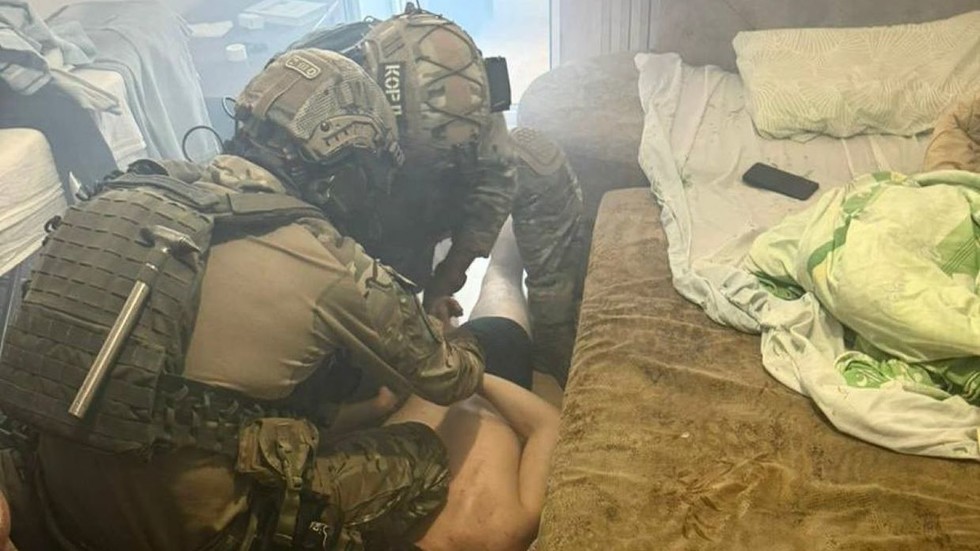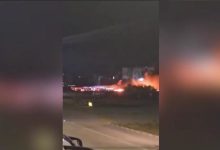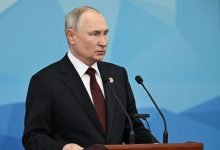
Former ultranationalist politician Irina Farion was assassinated outside her home last week
A photo showing detention of the suspect in Irina Farion’s murder case that was published by Ukrainian Interior Minister Igor Klimenko. © Telegram / Klymenko_MVS
A man suspected of assassinating former ultranationalist politician Irina Farion has been detained, Ukrainian Interior Minister Igor Klimenko confirmed on Telegram on Thursday. Farion, known for her fierce opposition to the use of the Russian language by Ukrainian citizens, was shot dead in the western city of Lviv on July 19.
In his statement, Klimenko said that the 18-year-old suspect is a resident of the southwestern city of Dnepr. He did not provide the suspect’s name. “While preparing to commit the crime, he rented at least three apartments in Lviv,” the minister wrote. Klimenko added that there is “enough evidence” that the suspect is the gunman who killed Farion.
“It is important to identify all the details. The investigation believes that the shooter is just a perpetrator,” Klimenko wrote, hinting that the suspect may have had accomplices. “More information will follow.”
On Wednesday, a neo-Nazi group calling itself National-Socialism / White Power (NS/WP) claimed responsibility for the murder and reportedly published a video from the crime scene on its private Telegram channel. Footage is said to show the moment when the shooter fatally wounded Farion.
Read more
The Telegram post was also accompanied by a message in Russian, in which the group accused Farion of using inflammatory rhetoric to foment divisions in Ukraine.
Farion represented the far-right Svoboda (Freedom) party in the Ukrainian parliament between 2012 and 2014. She repeatedly disparaged the Russian-speaking community in Ukraine and argued that the Russian language should disappear from public and everyday life.
Last year, Farion criticized the Russian-speaking members of Ukraine’s 3rd Separate Assault Brigade and the neo-Nazi Azov regiment. “Serving in the Ukrainian Army and speaking Russian – what kind of nonsense is that?” she said. Her remarks sparked outrage and led to her dismissal from a teaching position at the Lviv Polytechnic National University. The SBU launched a probe into her statements at the time.




